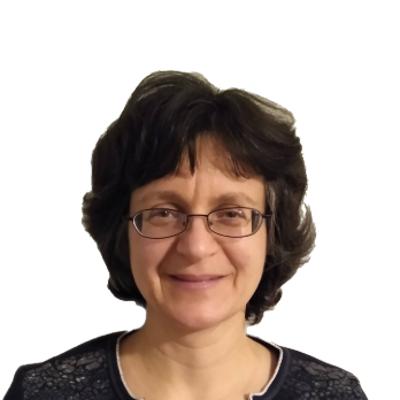Astrobiologist Betül Kaçar analyses a sample in a petri dish.
The focus of Betül Kaçar’s research is on the origin and early evolution of life, including fascinating topics such as the influence of geology on the development of biology. A Professor at the University of Wisconsin-Madison and the principal investigator at Kaçar Research Lab, she was one of the plenary speakers at the NASA-sponsored biannual meeting Astrobiology Science Conference, AbSciCon22. Along with her research, Kaçar is deeply interested in science education and the best ways to bring science to school-aged children.
Julia Brodsky: Why do you consider it paramount to inspire children about science early on?
Betül Kaçar: A broader perspective is the most valuable gift of education, and science is crucial in opening the world for a child. The most important audience for scientists is children. They are immensely curious, observant, and willing to soak in new information. As a baby, my son was fascinated by treetops. But as he grew older, he started noticing the night sky, the Moon, and those tiny sparkles. Three years later, after just three planetary rotations around the Sun, he was ready to ask big questions about the universe. We cannot expect teachers to keep up with cutting-edge science - there needs to be a way to create a more direct and immediate connection between kids and practicing scientists. My scientific discoveries may take decades, and I'm lucky if I figure out anything really significant in my lifetime. But when I inspire a child, I see the results right away.
Brodsky: In your opinion, what traits distinguish astrobiology students?
Kaçar: In school, our nature studies are fragmented into physics, chemistry, biology, and so on. But astrobiology dismantles the barriers between different branches of science. It also nurtures a community that invites scientists from all specialties, cultures, backgrounds, and educational paths. Diverse actors make astrobiology an extremely active and innovative field. Our students eagerly navigate multiple disciplines and become familiar with different, often divergent, terminologies. They learn to see the bigger picture, such as tying the behavior of a cell to a star’s parameters.
Brodsky: How approachable is astrobiology, compared to other sciences, on a school level?
Kaçar: For many scientific disciplines, you need costly resources and supplies. But a big chunk of astrobiology studies can be done through computers, wherever you are. At times, we assume that everyone has equal exposure to science. But I taught workshops across the globe - and I saw students sitting in a room with no heaters, wearing gloves and coats, while I was teaching them about the wonders of the Universe. Maybe that was the only time in their lives when they got a chance to learn about space science and the origins of life.
I imagine a world where everyone has an opportunity to study what they love. And in my day-to-day science life, I see the impact of early science outreach. For example, one of my undergraduates came to my lab because she attended workshops in her high school using the SAGANet material that we developed and fell in love with astrobiology. I encourage all of my colleagues to find ways for your science to get into the K-12 classrooms. You never know what inspiration you might create by revealing a path that young person may not have realized was open for them.
Brodsky: How would you design the best science program for children?
Kaçar: I would design it in a way that leads to direct interaction between children and the science community. Some scientists are naturally talented at being great communicators on top of doing great science, but they are unable to do both on a daily basis. I would love to have established intermediaries between scientists and kids - someone who loves being in the lab and is also comfortable with children and the general public, capable of following cutting-edge science and bringing it into the classroom. With more and more science exploration on the front pages, I hope to see a shift toward that.
Brodsky: How do your studies impact your vision of the world and future science education?
Kaçar: Diversity is what makes life flourish. Cooperation is particularly beneficial if you are in a difficult situation. Looking around, you will see examples of that everywhere in nature. We see connections between all levels of life. We realize that we are not only outside observers but also a part of that web of life. Our behavior has consequences. And great science education starts by asking questions in a supportive, collaborative environment that welcomes inquiry and open-ended exploration.

